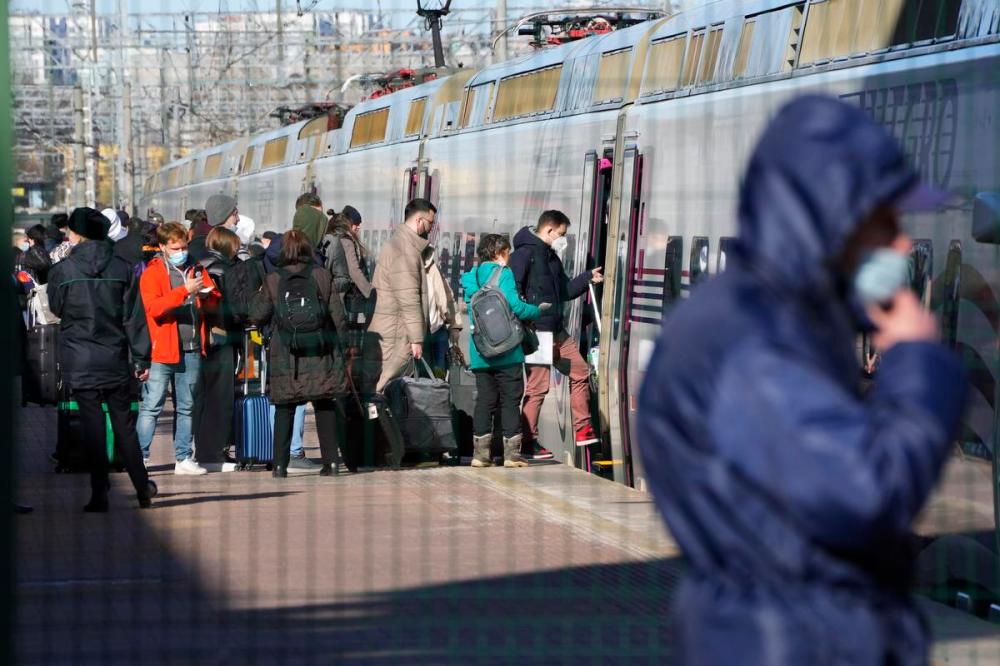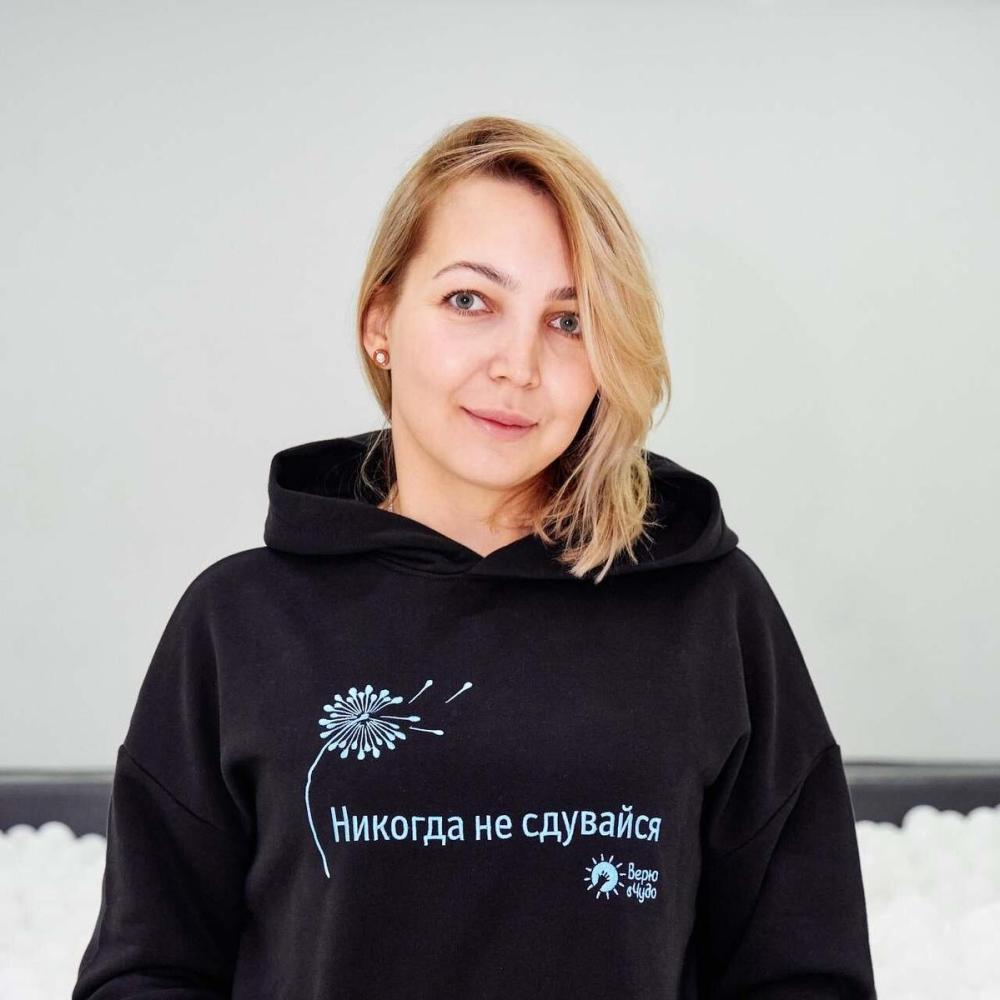Here’s how sanctions are being felt in Russia as Putin’s invasion of Ukraine drags on
Advertisement
Read this article for free:
or
Already have an account? Log in here »
To continue reading, please subscribe:
Monthly Digital Subscription
$0 for the first 4 weeks*
- Enjoy unlimited reading on winnipegfreepress.com
- Read the E-Edition, our digital replica newspaper
- Access News Break, our award-winning app
- Play interactive puzzles
*No charge for 4 weeks then price increases to the regular rate of $19.00 plus GST every four weeks. Offer available to new and qualified returning subscribers only. Cancel any time.
Monthly Digital Subscription
$4.75/week*
- Enjoy unlimited reading on winnipegfreepress.com
- Read the E-Edition, our digital replica newspaper
- Access News Break, our award-winning app
- Play interactive puzzles
*Billed as $19 plus GST every four weeks. Cancel any time.
To continue reading, please subscribe:
Add Free Press access to your Brandon Sun subscription for only an additional
$1 for the first 4 weeks*
*Your next subscription payment will increase by $1.00 and you will be charged $16.99 plus GST for four weeks. After four weeks, your payment will increase to $23.99 plus GST every four weeks.
Read unlimited articles for free today:
or
Already have an account? Log in here »
Hey there, time traveller!
This article was published 30/03/2022 (1354 days ago), so information in it may no longer be current.
Sofia Lagutinskaya’s medical charity for children with severe and terminal illnesses has been battered in the fallout from Vladimir Putin’s war in Ukraine.
The I Believe in Miracles charity — in Kaliningrad, a Russian province on the Baltic Sea that shares borders with Poland and Lithuania — helps kids with aggressive cancers, cystic fibrosis and diseases of the brain and nervous system.
But western sanctions imposed on Russia because of the invasion of Ukraine have made some vital medicines suddenly inaccessible, or available only at higher costs and with an untenable, months-long wait as they are sourced from other countries.

Donations have slumped, too, both from companies cutting costs as they deal with their own problems or trying to comply with the sanctions, as well as from individuals who can no longer transfer funds from their smartphones after payment apps stopped working with Russian banks.
One of Laguntinskaya’s recent requests was for donations of A4 paper — for mandatory record keeping — which has more than tripled in price. How to continue paying a team of doctors, nurses, therapists and psychologists?
“We weren’t ready for it. We weren’t ready for it in any way,” she told the Star.
As a Russian citizen, she said she couldn’t have fathomed that the military conflict between Russia and Ukraine would actually come to pass.
And like many other Russians running companies and organizations, she was also unprepared for the stark new economic reality that has emerged in the past month — one imposed by western governments to starve Putin of money to fund his war and, in the longer term, the popular support he needs to stay in power.
The economic penalties have frozen the accounts of political, military and business leaders as well as the currency reserves of the Russian central bank. This new status quo has left foreign firms terrified of doing business on Russian territory for fear of breaching sanction laws.
Sanctions will never rival the death and destruction that Russia’s bombs and missiles have caused in Ukraine, but their effects merit examination, if only because they are the only direct weapons the West wields against Russia.
A fish-canning plant in Kaliningrad offers one poignant example of how sanctions are working.
With a patriotic name like For the Motherland, you might expect the company’s operations to thrive while Russia wages war. Instead, it is now scrambling to find new tin suppliers to replace those in Europe that have severed ties. Tomato paste is normally imported from China and Iran, but no shipping companies will now deliver the product to Russian ports, so rail options are being examined.
Another ingredient, sunflower oil — produced in Voronezh, 500 kilometres south of Moscow — has doubled in price since the war began, said Sergei Lyutarevich, chairman of For the Motherland’s board of directors.
“True, it’s not easy, but we are trying to cope with this challenge,” he told the Baltic Plus radio station.
Doing business in a crisis was the theme of a conference held at Moscow’s Riviera Shopping Centre, which overlooks the Moskva River.
Riviera is one of the Russian capital’s numerous mega-malls, bright and sparkling temples to capitalism, home to many of the top international brands, as well as amusement parks, skating rinks and sprawling food courts.
But the shopping centres have become one of the most visible signs of international condemnation as dozens of western companies, from Ikea to Apple to H&M, suspended Russian operations. The conference speakers included those left behind — the retailers now trying to move forward with little hope of a quick resolution to the conflict and a return to business as usual.
One speaker gossiped that he knew of as many as a dozen more brands that were prepared to leave Russia. Those still open and operating will be reaching the end of their warehouse stock over the next two months, while incoming stock is held up in containers at ports and outside Russia, with few shipping companies currently able or willing to complete the delivery.
The delays risk creating an absurd situation for Russian fashion retailers, who operate based upon seasonal trends.
“To whom will we sell boots in May, or sandals in December?” asked one footwear retailer, according to a summary of the conference, which was organized by the Union of Shopping Centres.
While many of the western brands and retailers continue to pay rent for their shuttered stores, mall owners are already looking east for alternatives.

Dmitry Moskalenko, president of the Russian Council of Shopping Centres, said his organization is in contact with the trade councils of Turkey, Iran, India and China — countries that have not imposed sanctions — in the hope of finding the next Nike, Zara and Uniqlo.
“Over time, this will help complement or completely replace the products of the departed brands with those similar in quality and design,” he said.
The people who are leaving Russia may be harder to replace.
Wealthy Russians are flocking to Dubai where they can receive a residency permit upon purchase of a property valued at one million dirhams ($340,000) — a reasonable sum by Canadian standards, though an unattainable one for many in Russia, where the median annual salary in 2020 was about $6,500.
There were 6,300 transactions — a record — in February 2022, which was 70 per cent higher than in February 2021, said Ekaterina Rumyantseva, founder of the Moscow-based Kalinka Group, a real-estate agency which recently opened a Dubai branch to deal with the surge in business.
Russians with more modest means have also left — for Europe if they have a pre-existing European visa, and if not, for the likes of Turkey, Armenia, Georgia and other countries that don’t require a visa.
“It’s not just IT workers who are leaving,” Boris Katz, development director for Leonardo, a hobby retail store, said at the shopping mall conference. “The middle class is being washed out — your shopping centre customers.”
There are those who see a blessing in Russia’s sudden economic, social and political isolation — an opening for a sort of Russian renaissance, a cleansing of western influence and iniquity.
Authorities, however, don’t have the time to build a new Russian world from scratch. Instead, they are redrafting laws and regulations to allow parallel imports, a term referring to the importation of products without the permission of the trademark holder.
The Ministry of Industry and Trade is reportedly preparing a list of “socially significant products” that are in demand, experiencing a shortage, or whose prices have risen significantly as a result of sanctions. These are products, the ministry told the Kommersant newspaper, deemed “necessary to saturate the consumer market.”
But with the threat of job losses, the restrictions, the population outflow and the wild fluctuations in the value of the currency, which jumps up and down almost daily, it seems far from certain how much disposable income Russians will have and what they will be willing to spend it on.
In the month since Putin ordered Russian troops into Ukraine, stable, profitable stalwarts of the Russian economy — companies accustomed to planning months and years in advance — have found themselves unable to predict what situation they will find themselves in when June rolls around.
It’s a point that was hammered home in an online advertisement for a popular Russian electronics store offering “new appliances at old prices.”
“Old” as in pre-sanctions. “Old” as in pre-war. “Old” as in pre-inflation. “Old” as in 35 days ago.


